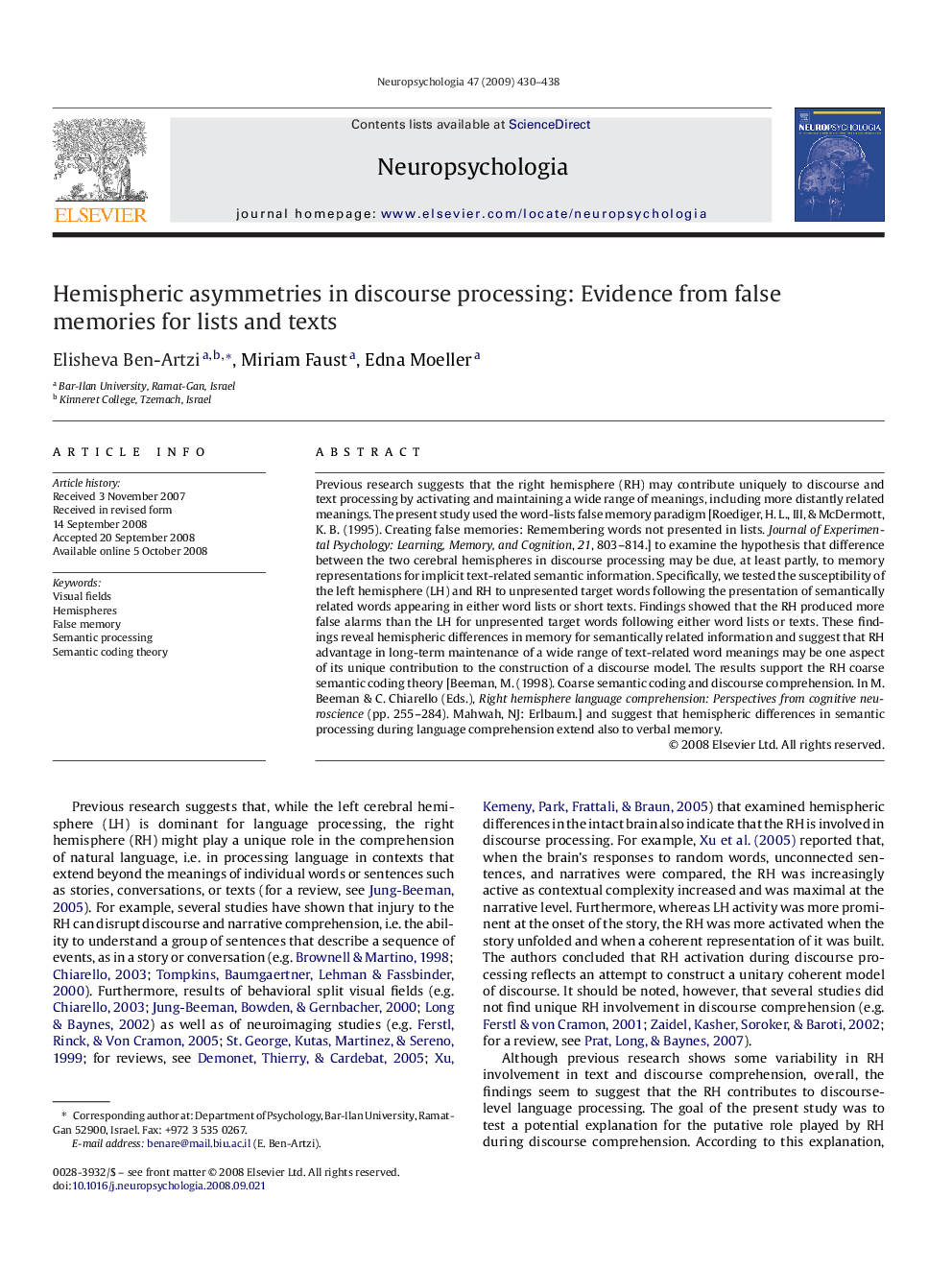| Article ID | Journal | Published Year | Pages | File Type |
|---|---|---|---|---|
| 10466392 | Neuropsychologia | 2009 | 9 Pages |
Abstract
Previous research suggests that the right hemisphere (RH) may contribute uniquely to discourse and text processing by activating and maintaining a wide range of meanings, including more distantly related meanings. The present study used the word-lists false memory paradigm [Roediger, H. L., III, & McDermott, K. B. (1995). Creating false memories: Remembering words not presented in lists. Journal of Experimental Psychology: Learning, Memory, and Cognition, 21, 803-814.] to examine the hypothesis that difference between the two cerebral hemispheres in discourse processing may be due, at least partly, to memory representations for implicit text-related semantic information. Specifically, we tested the susceptibility of the left hemisphere (LH) and RH to unpresented target words following the presentation of semantically related words appearing in either word lists or short texts. Findings showed that the RH produced more false alarms than the LH for unpresented target words following either word lists or texts. These findings reveal hemispheric differences in memory for semantically related information and suggest that RH advantage in long-term maintenance of a wide range of text-related word meanings may be one aspect of its unique contribution to the construction of a discourse model. The results support the RH coarse semantic coding theory [Beeman, M. (1998). Coarse semantic coding and discourse comprehension. In M. Beeman & C. Chiarello (Eds.), Right hemisphere language comprehension: Perspectives from cognitive neuroscience (pp. 255-284). Mahwah, NJ: Erlbaum.] and suggest that hemispheric differences in semantic processing during language comprehension extend also to verbal memory.
Related Topics
Life Sciences
Neuroscience
Behavioral Neuroscience
Authors
Elisheva Ben-Artzi, Miriam Faust, Edna Moeller,
